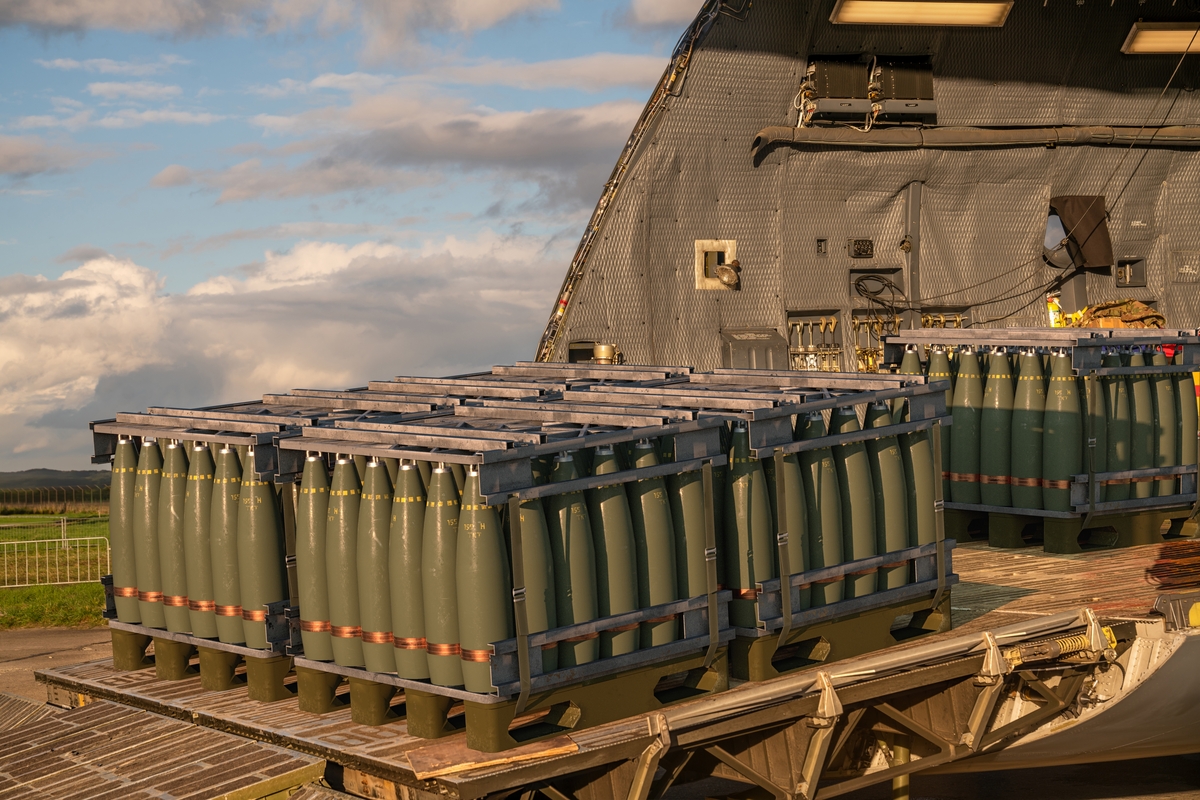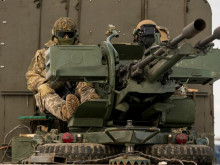Turning point in Berlin: Why Germany stopped arms exports to Israel and its impact on Europe
German foreign policy toward Israel is undergoing a fundamental transformation this year. This development will have far-reaching consequences for bilateral relations and for European Middle East policy as a whole. Chancellor Friedrich Merz's announcement of a halt to "the export of military equipment that could be used in the Gaza Strip until further notice" represents a symbolic and practical turning point in Berlin's relationship with the Jewish state. The decision came after Israel announced its plan to take complete control of Gaza, which the German government assessed as an escalation with the risk of mass civilian killings. "We cannot supply weapons to a conflict that is now being fought exclusively by military means. We want to help diplomatically, and that is what we are doing," Friedrich Merz explained. "Where are these people [Palestinians] supposed to go? We cannot do that, we will not do that, and I will not do that." This quote captures the attempt to reevaluate the ethical framework of German policy toward Israel.

To understand this change, we must go back to 2008. Former Chancellor Angela Merkel then described the defense of Israel as "part of German national identity" and its security as "part of German Staatsräson." This phrase (loosely translated as "fundamental national interest") signified Berlin's commitment to stand unconditionally on Israel's side. The Germans traditionally explained their position by citing historical guilt for the Holocaust and a deep conviction of their moral obligation to protect the Jewish state. For decades, this principle determined German policy. Regardless of the actions of Israeli governments, Berlin provided economic, political, and military support to the Jewish state. For this reason, Germany became the second-largest supplier of weapons to Israel after the United States, with exports worth approximately $380 million in 2023.
However, the current reality presents dilemmas that neither Angela Merkel nor her successors have had to deal with before. The Israeli military operation, which began in response to Hamas attacks on October 7, 2023 (the most tragic day for Jews in terms of casualties since the end of the Holocaust), has gradually turned into a long-term war with catastrophic humanitarian consequences. The conflict has claimed tens of thousands of Palestinian lives, leading to international accusations of war crimes and even genocide. Spanish politician and Executive Vice-President of the European Commission for the European Green Deal, Teresa Ribera, even described "Israeli actions in Gaza" as "very similar to genocide." This discourse has also penetrated the German public debate, where the national memory of the Holocaust clashes with current images of humanitarian catastrophe.
Chancellor Merz's move is not an isolated one. It was preceded by decisions by Belgian and Dutch courts to halt exports of military components, including spare parts for F-35 aircraft, and partial export restrictions by Spain and the United Kingdom. Nevertheless, the significance of the German embargo is extraordinary. Not only because of the size of the federal defense industry, but also because of its symbolism. Berlin has long been one of Israel's strongest European allies. Friedrich Merz emphasized that "Germany has stood firmly alongside Israel for 80 years, and this will not change," but at the same time warned against the planned expansion of operations in Gaza with hundreds of thousands more victims. In doing so, he defined the limits beyond which unconditional support ends and international rules applicable to all begin.
The decision is taking place in the context of broader European dynamics. The United Kingdom and France are coordinating their positions with Germany on Ukraine, but are moving in a different direction on the Israeli-Palestinian conflict. Both European powers are preparing to officially recognize the Palestinian state. Chancellor Merz rejects recognition, which shows the limits of how far he is willing to go in changing his position. Nevertheless, the fact that Berlin is now closer to Paris and London than to the traditional pro-Israel line cannot be overlooked. The Germans are thus moving away from their role as unconditional defenders of Israel and closer to the European mainstream, which emphasizes humanitarian law and a two-state solution.
In addition to the export of military equipment, the debate is also expanding to include imports. Germany is not only a supplier but also a buyer of Israeli weapons and technology. A huge contract for Arrow 3 missile defense systems worth $3.5 billion, the purchase of Heron armed drones, PULS rocket launchers, and Trophy active protection systems for Leopard 2 tanks point to the growing use of Israeli weapons in Bundeswehr units. Paradoxically, these purchases may undermine European strategic autonomy, which Germany has declared a priority. French President Emmanuel Macron has repeatedly criticized "reliance on non-European defense systems such as Arrow 3" because they lead to "a weakening of Europe's ability to act independently." Legal restrictions also play a role: German foreign trade law requires that commercial transactions do not jeopardize peaceful coexistence between nations. If Israeli policy increasingly finds itself on the edge of international law, the question of the compatibility of these contracts with federal legislation also arises.
Reactions in Germany are divided. Some conservative circles describe Merz's initiative as treason, while liberal think tanks emphasize the need for a "more confident approach" and an end to policies driven by fear of accusations of anti-Semitism. According to a survey by the Bertelsmann Stiftung foundation, only 36% of Germans view Israel positively, suggesting a shift in public opinion away from the traditional line of the political elite. Demonstrations are being held in German cities both in support of Israel and against its policies in Gaza, with both sides using highly emotional arguments.
This development has implications for smaller EU states, particularly the Czech Republic, which is one of Israel's most vocal supporters. Prague has long based its policy on unconditional support for Israel's right to self-defense, a position shared across most of the political spectrum. However, if the Berlin-Paris-London axis shifts toward conditional support, the Czech Republic risks isolation. The October elections may bring a change in tone, but the European trend is clear—politics is shifting from unconditional solidarity to a policy that assesses Israel's actions in terms of international law and humanitarian standards. In this environment, Czech pro-Israel activism may increasingly be perceived as an anomaly requiring correction.
The economic dimension cannot be overlooked either. Israeli companies such as Elbit Systems are reporting record profits. In the second quarter of 2025, they achieved sales of $1.97 billion and the total value of orders was $23.8 billion. Europe accounts for almost a third of this volume. Despite political restrictions, demand for Israeli weapons is clearly growing. Merz's embargo may not result in an immediate decline in supplies, but it may have a strong symbolic effect. This is probably why Israel's ambassador to Berlin, Ron Prosor, reacted sharply to it: “Will this decision bring the hostages home? Does it bring us closer to a ceasefire? The answer is no.”
The fundamental question remains whether Germany can break free from the paradigm established by Angela Merkel during her speech in the Knesset in 2008. Although we cannot question Berlin's historical responsibility, it cannot be interpreted as a blank check for any Israeli policy. Europe expects Israel to end the war and present a clear political plan. The current rhetoric of total victory by purely military means makes this perspective impossible. If Europeans do not see a realistic vision for Gaza from the Jewish state, pressure to revise relations will grow.
Germany thus faces a dual task: to remain faithful to its historical commitments while reflecting the reality that support for Israel is no longer compatible with the principles of international law and European values. Although according to Merz the foundations of German-Israeli relations have not changed, their interpretation is undergoing a certain evolution. Along with this, there has been a change in Europe's geopolitical position in the conflict, which has become a litmus test for the ability to reconcile German national memory with the violent reality of the Middle East.
















